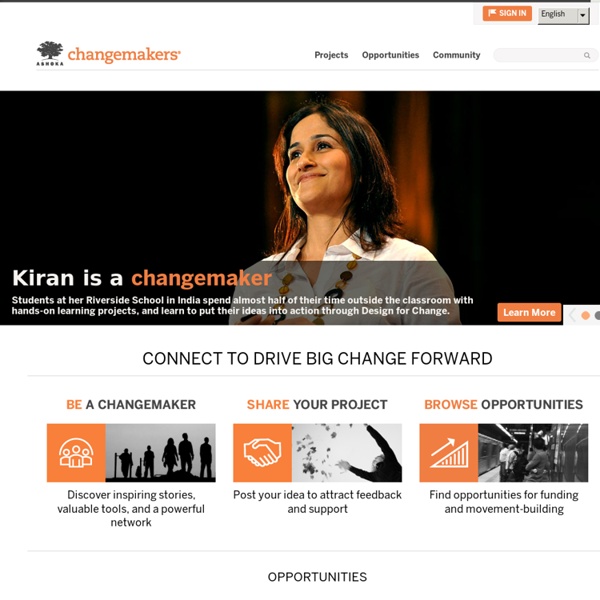



Nourishing the Planet Share By Kristen Thiel Iroko trees are native to the west coast of Africa. Sometimes called Nigerian teak, their wood is tough, dense, and very durable. Their hardwood is so sought after that the trees are often poached and are now endangered in many regions of Africa. Food and Agriculture : Center for Global Development : Research Topics More than a billion people in developing countries suffer from chronic hunger. Long a neglected topic, the role of agriculture in promoting pro-poor growth is attracting renewed attention in the United States and internationally. CGD’s work in this area focuses on how rich countries’ agricultural policies and practices impact people and economic development in the poor world. Three out of four people in the developing world live in rural areas and depend on agriculture to support themselves and their families. Yet, since development traditionally involves moving people from subsistence farming into higher-productivity activities in manufacturing and services, governments and donors have neglected agriculture for decades.
Smart City & Living Accelerator · Amsterdam Startupbootcamp is the number 1 accelerator in Europe. Startupbootcamp will innovate the Smart City & Living ecosystem by providing the most promising startups in the "Smart City & Living space" (see definition below). This means that we'll realize together with the selected startups in 3 months what normally will take you 18 months. Aid Effectiveness : Center for Global Development : Research Topics The Center’s work on aid effectiveness focuses on the policies and practices of bilateral and multilateral donors. It includes analyzing existing programs, monitoring donor innovations, and designing and promoting fresh approaches to deliver aid. CGD researchers also investigate how foreign aid and other aspects of development—such as trade, migration, investment, and climate change policies—undermine or complement each other. Specific work includes:
Eight lessons from three years working on transparency I’ve spent the last three years working on aid transparency. As I’m moving on to a very exciting new role (watch this space for more details) this seems a good time to reflect on what I’ve learned in the last three years. This is a self-indulgently long essay about the importance of aid transparency, and the priorities for how it should be achieved. Busy readers may want to read the 8-point summary below. The Founder Institute: Helping Founders to Build Great Companies The Founder Institute is the world's largest entrepreneur training and startup launch program, helping aspiring founders across the globe build enduring technology companies. In our four-month, part-time program, you can "learn by doing" and launch a company through structured training courses, practical business-building assignments, and expert feedback. Plus, you are not required to quit your day job to participate. Founder Institute Montreal Spring 2014 Semester (not in Montreal?
An Agricultural Peace Dividend In northern Uganda, home to one of Africa’s longest and most brutal civil conflicts, organic farming is producing economic growth and stability. (Illustration by Justin Gabbard) “ The hardest part is reopening the land,” says Stella Atimango, an agricultural extension worker standing in a former battle zone beside neat rows of recently planted cotton on a one-acre farm in northern Uganda. Beyond Atimango, the tiny cotton field was surrounded by an abandoned countryside, the result of two decades of fighting between the Ugandan military and the Lord’s Resistance Army. Today, smallholder farmers use hand hoes and oxen to reclaim their land. The famine in East Africa is lending even greater urgency to Atimango’s work.
Develop your business through networking - www.entrepreneurstoolkit.org There are at least five types of business organizations to consider joining in order to develop your business through networking. Casual Contact Networks The first of the five types of networking groups are casual contact networks. These are business groups that allow many people from various overlapping professions. These groups usually may meet regularly, however more increasingly the networking is carried out online.
Give a man a fish and feed him for life? Experimental evidence on the long-term effects of grants on Sri Lankan Microenterprises Typical policies to improve the incomes of poor households and their businesses are based on the sustained provision of services – be it microfinance with multiple loan cycles and regular meetings; conditional cash transfers with regular transfers over a period of years; or business training programs which are based on the idea that capital along is not enough – as in the proverb “give a man a fish and he eats for a day, teach a man to fish and he can feed himself for life”. In a new paper with Suresh de Mel and Chris Woodruff, published online today in Science, we ask whether the much simpler policy of giving a one-time grant to small business owners has any long-term effect. [An aside to World Bank/IFC readers, I am delighted that our library now finally has arranged full-text online access to Science – and the paper is short, so click through!]. Key long-term impacts · The grants continue not to have any impacts on female-owned microenterprises in the long-run. Multiple Measurements